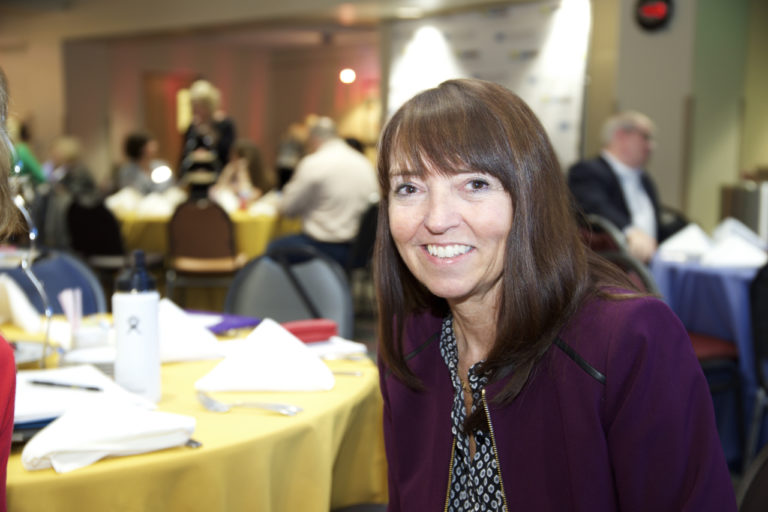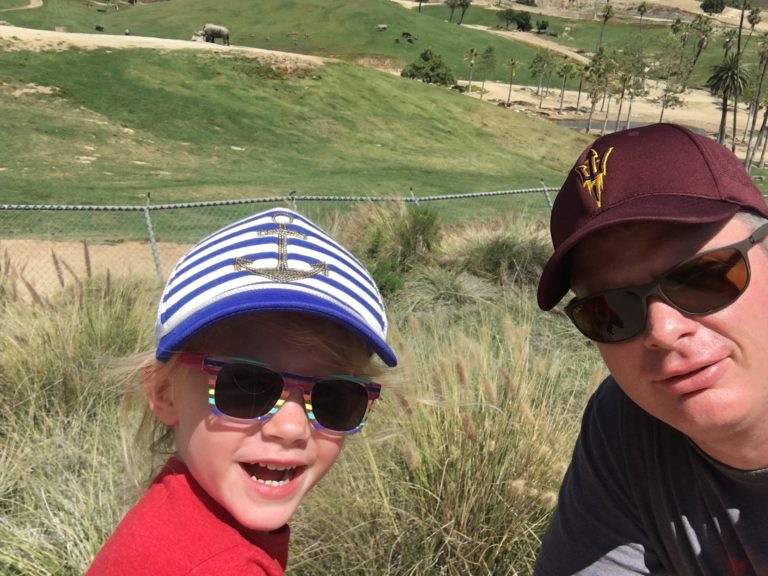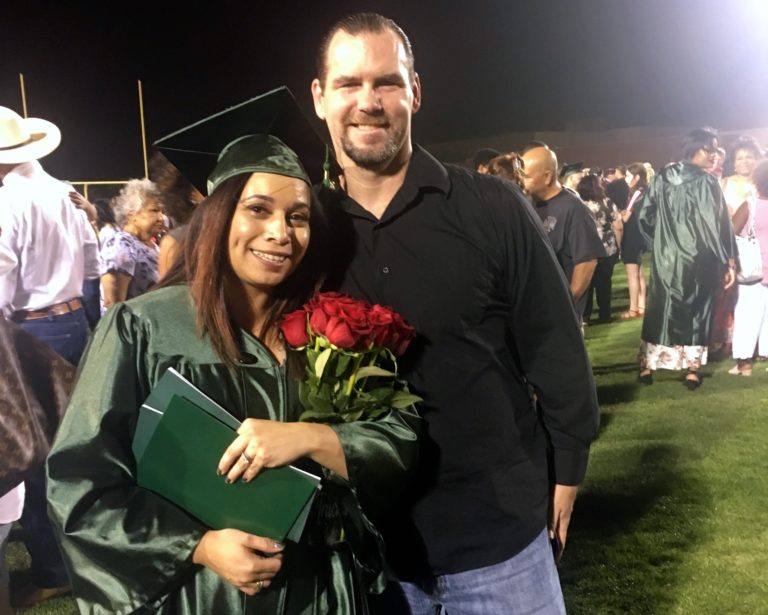What’s the best way to maintain an anti-bias curriculum during the holiday season? For Laura Salter, Center Director of Signal Peak Early Learning Center at the Central Arizona College campus in Coolidge, the answer is to maintain a “policy of neutrality.”
Not only does this policy address holidays based on a particular religion, it means no birthday celebrations, Halloween costume parades, Valentine exchanges or Thanksgiving feasts. Salter believes that staying neutral is the best way to truly follow an anti-bias curriculum based on developmentally appropriate practices. She shares her thoughts on why she believes this approach is the best way to fully include everyone — all year round.
Talk about the policy of “neutrality” you have developed for your program. When were you first aware of the need for this kind of policy?
I’ve been working in the ECE field for about 25 years. In college, I learned about Developmentally Appropriate Practices, anti-bias curriculum & inclusion, all of which is at the core of everything I do and teach. I have worked with many who claim to be Child Development professionals — yet they ignore the backgrounds of their families just so they can “spread some holiday cheer.” Spreading cheer is a wonderful thought, but being left out is not! A classroom can have wonderful traditions and be joyous all year long while it remains neutral. Excluding a child for any reason —it’s just not okay. Assuring no one is left out creates unconditional warmth and acceptance.
So you are simply drawing on what you learned during your formal study of early childhood education?
When we learn about anti-bias curriculum and developmentally appropriate practices and inclusion, to me all those things are one and the same. If we are following all of that information that we’ve been taught, then it should come naturally that we do stay neutral so everybody can feel comfortable and feel welcomed into the program, and not feel excluded for any reason.
What has been the reaction among your colleagues?
A “staying neutral” policy is often a challenge to implement. Over the span of my ECE career, I’ve come across people who I’ve worked with and companies that I’ve worked for that don’t support it. They are simply very holiday-oriented. It’s tough. They seem to throw child development best practices out the window because of holiday time.
And that includes celebrating birthdays?
Years ago, I had taken over an after-school program and on my first day of work, a kindergartener was sent to go work on the computer while the other students were enjoying a birthday celebration. He wasn’t in trouble, his family just didn’t celebrate birthdays. How was this child to feel when his class was enjoying cupcakes and he was sent to be by himself? Did he feel welcomed in his after-school environment? Surely not, and that is my concern.
Why would you have to take particular children out of the room if you were going to sing happy birthday?
We have families that are Jehovah’s Witnesses. They don’t celebrate birthdays or holidays.
Sometimes parents might bring in a treats to be passed out as children leave. Your thoughts?
A colleague of mine pointed out that when parents bring in a sugary birthday treat, often teachers need to hold it till the end of the day because we serve children more healthy choices during the day. We both agreed that a child takes nothing out of that celebration when their classmates simply take home a cupcake. I very much believe that those traditions are wonderful, but they really need to be experienced outside the school setting with family and with friends.
Talk about your experience with the Signal Peak Early Learning Center.
We have multiple families here that do not celebrate the holidays or the birthdays. So when my co-worker and I were talking about how can we sing happy birthday to a student, and have to tell three students to leave the room — so we can do that? It’s something to look at.
How about those classrooms or programs where the population is completely in agreement on the inclusion of particular holidays or celebrations in a curriculum?
I’ve also heard people say, well everybody in my preschool celebrates the same way, so why should it matter? My response to that? You never know who’s going to walk in the door. A parent who might be interested in enrolling their child in the program. Based on their beliefs, it might be a barrier for those families to enter your program.
Can neutrality policies also benefit families who face economic exclusion?
That’s why some programs do not allow birthday treats, cupcakes, balloons, whatever it might be, because that isn’t in the budget for many of those families. There are so many reasons to stay neutral so that family members will not feel awkward because they can’t spend the money.
Yet a school birthday celebration, assuming there is no religious restriction within the family, might be one of the few times a child is acknowledged, celebrated, and hears that traditional singing of “Happy Birthday!”
Even though I believe in this neutrality on all these issues, if a child initiates something, say, a child says, “Hey, it’s my birthday and I’m gonna have cake tonight!” This is still an absolutely wonderful conversation to have with a child, and I won’t cut that off one bit. But it should not be teacher-directed. If a child says, “Hey, I’m gonna go see Santa tomorrow!” we have a whole conversation about what might they talk to Santa Claus about. It’s no problem.
Say you set up a drawing center and the students began trying to make Christmas trees from triangles with circles for ornaments that caught on. That kind of expression isn’t halted?
It’s absolutely okay. I once had an experience with a parent who I could tell was a bit offended by the policy of neutrality told her son that he should put a ghost and a jack-o-lantern in a tree he made at school. I said, “That’s a great idea.” I think that surprised her, but I think it helped her understand that we’re not going to stop the creativity and the ideas of the children. We’re simply not going to initiate them.
Some may argue that Independence Day or Thanksgiving celebrations bring us together as Americans and help us gather around what we do have in common – and that that is a form of inclusion.
Any tradition that a family values is wonderful. People can come together in so many different ways. But I believe these celebrations belong at home, with extended family and friends.
If we can create a neutral community in early childhood programs, we’re coming together on that basis.
Do you find that parents accept and come to appreciate the idea of staying neutral?
I always have a few parents everywhere I’ve worked who absolutely question and might not agree with a neutrality policy, or understand it, but I do think the majority of the families that I work with, they get it.
And what would you say to parents and teachers who are reluctant to change, yet curious about how a staying neutral policy meets the standards of the anti-bias curriculum?
People need to come and give programs like ours a chance, and to see how warm and inclusive these programs really are. We celebrate, but it’s just in different ways. We celebrate the children’s achievements and how well they’re developing and progressing. If they were able to come in and get to know everyone, they would see that we are really all the same. Everybody just wants to be accepted and included.
Many early childhood educators have questions about how to approach the holidays. NAEYC has compiled key information, related resources as well as self-reflective exercises for teachers on the anti-bias curriculum. Learn more.
In collaboration with the Easterseals Blake Foundation, Signal Peak Early Learning Center is seeking NAEYC accreditation and providing high quality child care and hands-on service learning for Central Arizona College students, faculty and community members.




